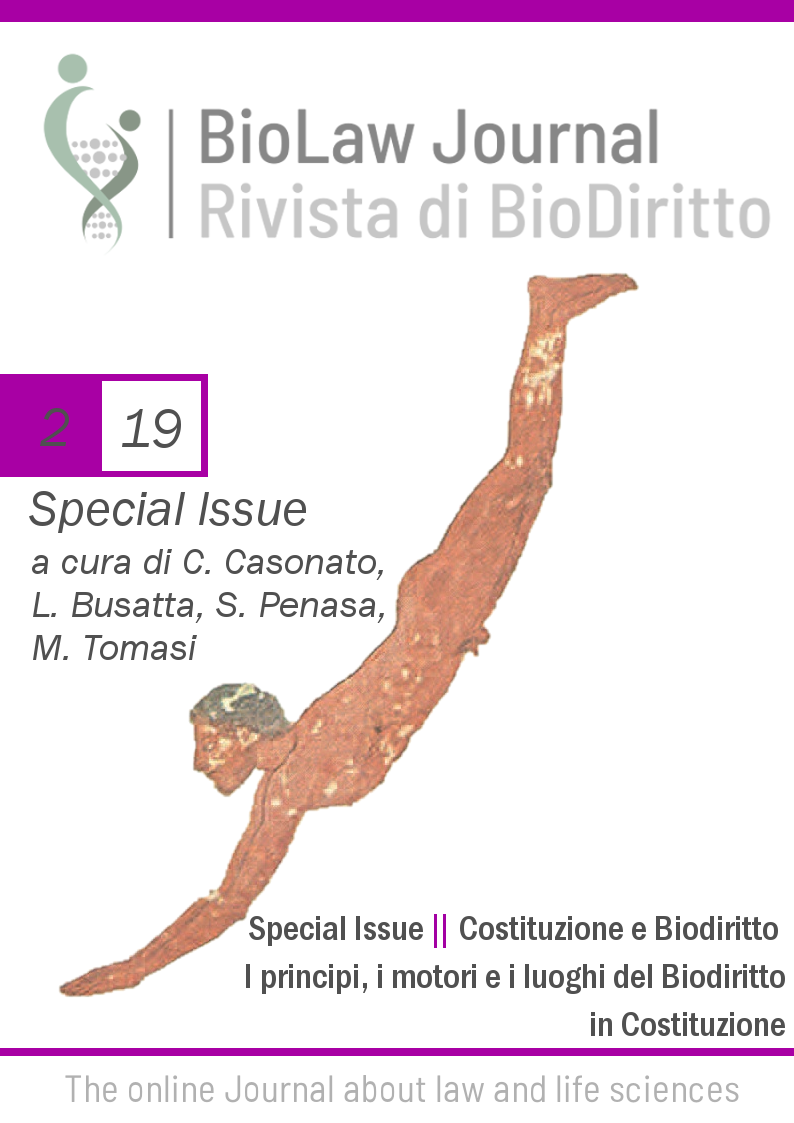Sulla sostenibilità della dignità come autodeterminazione
DOI:
https://doi.org/10.15168/2284-4503-460Parole chiave:
Dignity, right to life, self-determination, neutralism, paternalism, assisted suicide debateAbstract
The paper, considering that, in recent years, the concept of dignity is opposed to that of life and frequently combined with the alleged right to assisted suicide, aims to identify the cultural premises of this assumption and to evaluate it in the light of the Constitution. Crucial appear the theories based on the distinction between man and person, such as social Darwinism. In these views the dignity of every human being depends on capacities of autonomy or self-determination. However, the implications are distant from the constitutional axiological framework and risk undermining many human rights and equality. The right to assisted suicide is then only apparently liberal, as it is pretensive and implies the duty to kill. Above all, it presupposes a conception of life that is instrumental for other ends and not itself a basic good and a sufficient reason, because based on a judgment that discriminates according to the quality of life. On the contrary considering the life’s innate dignity is the most democratic of principles. Moreover, there is a very close relationship between this recognition and “equal social dignity”. Hence a norm that prevents to act intentionally against life does not result an unreasonable restriction of freedom and appears to be acceptable even in a moderately neutralist or utilitarian perspective.





